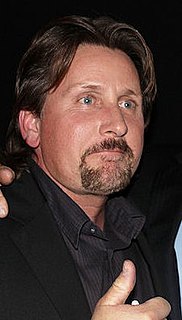A Quote by Yukio Mishima
We tend to suffer from the illusion that we are capable of dying for a belief or theory. What Hagakure is insisting is that even in merciless death, a futile death that knows neither flower nor fruit has dignity as the death of a human being. If we value so highly the dignity of life, how can we not also value the dignity of death? No death may be called futile.
Related Quotes
Everybody is afraid of death for the simple reason that we have not tasted of life yet. The man who knows what life is, is never afraid of death; he welcomes death. Whenever death comes he hugs death, he embraces death, he welcomes death, he receives death as a guest. To the man who has not known what life is, death is an enemy; and to the man who knows what life is, death is the ultimate crescendo of life.
The dignity to be sought in death is the appreciation by others of what one has been in life,... that proceeds from a life well lived and from the acceptance of one's own death as a necessary process of nature.... It is also the recognition that the real event taking place at the end of our life is our death, not the attempts to prevent it.
Birth leads to death, death precedes birth. So if you want to see life as it really is, it is rounded on both the sides by death. Death is the beginning and death is again the end, and life is just the illusion in between. You feel alive between two deaths; the passage joining one death to another you call life. Buddha says this is not life. This life is dukkha - misery. This life is death.
What's wrong with death sir? What are we so mortally afraid of? Why can't we treat death with a certain amount of humanity and dignity, and decency, and God forbid, maybe even humor. Death is not the enemy gentlemen. If we're going to fight a disease, let's fight one of the most terrible diseases of all, indifference.
The belief in the probability of death with dignity is our, and society’s, attempt to deal with the reality of what is all too frequently a series of destructive events that involve by their very nature the disintegration of the dying person’s humanity. I have not often seen much dignity in the process by which we die.
Someone's killed 100,000 people. We're almost going, "Well done! You killed 100,000 people? You must get up very early in the morning! I can't even get down the gym. Your diary must look odd: 'Get up in the morning, death, death, death, death, death, death, death - lunch - death, death, death - afternoon tea - death, death, death - quick shower ...' "
Life rises out of death, death rises out of life; in being opposite they yearn to each other, they give birth to each other and are forever reborn. And with them, all is reborn, the flower of the apple tree, the light of the stars. In life is death. In death is rebirth. What then is life without death? Life unchanging, everlasting, eternal?-What is it but death-death without rebirth?
There is no single best kind of death. A good death is one that is "appropriate" for that person. It is a death in which the hand of the way of dying slips easily into the glove of the act itself. It is in character, ego-syntonic. It, the death, fits the person. It is a death that one might choose if it were realistically possible for one to choose one's own death.
The greatest mystery in life is not life itself, but death. Death is the culmination of life, the ultimate blossoming of life. In death the whole life is summed up, in death you arrive. Life is a pilgrimage towards death. From the very beginning, death is coming. From the moment of birth, death has started coming towards you, you have started moving towards death.
But we are not interested in death at all: rather, we escape the facts, we are continuously escaping the facts. Death is there, and every moment we are dying. Death is not something far away, it is here and now: we are dying. But while we are dying we go on being concerned about life. This concern with life, this over concern with life, is just an escape, just a fear. Death is there, deep inside - growing.





























